Events and Seminars
GCIR Seminar 11 Oct 2024 Circadian Medicine
Date: Friday, 11 October 2024
Time: 14:00 - 16:00
Venue: CMU - Room Franceschetti
The GCIR scientific seminars, held quarterly during the academic year, are designed for researchers and biomedical students and focus on both clinical and fundamental research on specific topics related to inflammation. We are grateful to our seminar sponsors, MesenFlow Technologies, Light Chain Bioscience and AMAL Therapeutics, for their invaluable support.
We are pleased to invite you to our upcoming seminar on circadian medicine!
Programme:
Keynote Speaker:
14:00 - 14:30 Prof. Francis Lévi
Emeritus Cancer Research Director at Paris-Saclay University, France, and Honorary Professor of Biomedicine and Oncology at the University of Warwick, UK
"Advancing personalised cancer chronotherapy"
INVITED SPEAKERS:
14:40 - 14:55 Prof. Alper Okyar
Director of the Technology Transfer Center (IU-TTC), Istanbul University Faculty of Pharmacy, Turkey
"Everolimus chronopharmacology in mice"
15:00 - 15:15 Prof. Halil Kavakli
Professor of Chemical and Biological Engineering, Molecular Biology and Genetics, Koc University, Turkey
"Identification of small molecules that target core clock proteins for the treatment of different diseases"
UNIGE SPEAKERS:
15:20 - 15:40 Shared Lecture: "Chronobiology of cancer: translation to diagnostics and chronotherapy"
Prof. Charna Dibner
Associate Professor, Thoracic and Endocrine Surgery Division, Department of Surgery, Department of Cell Physiology and Metabolism, Faculty of Medicine, University of Geneva
Prof. Christoph Scheiermann
Full Professor, Department of Pathology and Immunology, Geneva Centre for Inflammation Research, Faculty of Medicine, University of Geneva
15:45 COFFEE FOR ALL THE PARTICIPANTS
SPEAKERS
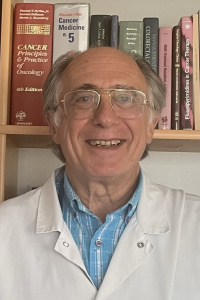
Prof. Francis Lévi, Emeritus Cancer Research Director, Paris-Saclay University, France; Honorary Professor of Biomedicine and Oncology, University of Warwick, UK
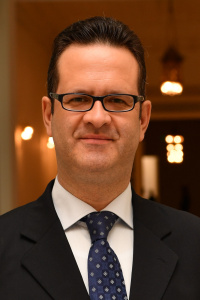
Prof. Alper Okyar, Director of the Technology Transfer Centre (IU-TTC), Istanbul University Faculty of Pharmacy, Turkey
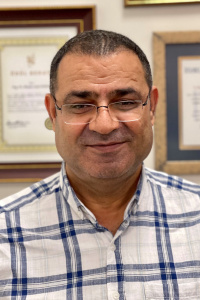
Prof. Halil Kavakli, Professor of Chemical and Biological Engineering, Molecular Biology and Genetics, Koc University, Turkey
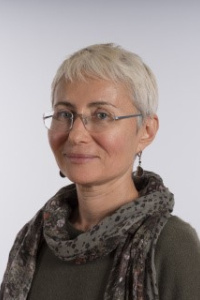
Prof. Charna Dibner, Associate Professor, Thoracic and Endocrine Surgery Division, Department of Surgery, Department of Cell Physiology and Metabolism, Faculty of Medicine, UNIGE
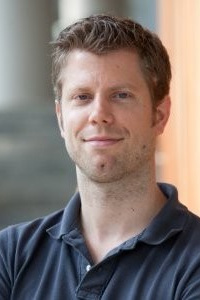
Prof. Christoph Scheiermann, Full Professor, Department of Pathology and Immunology, Geneva Centre for Inflammation Research, Faculty of Medicine, UNIGE
Advancing personalized cancer chronotherapy
Prof. Francis Lévi, “Chronotherapy, cancer and Transplantation” Unit, Paris-Saclay University, Villejuif, France
Talk Summary
Prof. Francis Lévi will discuss the latest advancements in the field of cancer chronotherapy within precision and personalized medicine. Recent clinical findings have demonstrated the significant benefits of timing treatments such as immune checkpoint inhibitors and adjuvant therapies. Morning administration of immune checkpoint inhibitors and evening dosing of tamoxifen and everolimus have notably extended survival in patients with metastatic cancers and high-risk breast cancer, respectively. Prof. Lévi will also highlight the importance of real-time circadian rhythm metrics for personalizing treatment schedules and minimising adverse effects in chemotherapy patients. He will underscore the need for large-scale randomized clinical trials and the integration of circadian concepts in drug development and healthcare systems.
Biography
Prof. Francis Lévi, MD, Ph.D., is a renowned expert in cancer chronotherapy and human circadian rhythms. His postdoctoral training took place at the University of Minnesota and later at Paul Brousse Hospital in Villejuif, France. Prof. Lévi has led significant research teams at the French National Institute for Health and Medical Research and the University of Warwick. He is currently Emeritus Research Director at CNRS, France, and Honorary Professor at the University of Warwick. His work focuses on the timing of anticancer drug administration and personalized chronotherapy. Prof. Lévi has co-steered multiple EU research projects, conducted numerous clinical trials, and published extensively in scientific journals. In 2022, he co-founded the first international network for personalized cancer chronotherapy.
Links to recent publications
- https://authors.elsevier.com/sd/article/S2059702923014618
- http://www.annualreviews.org/eprint/XCXXFPDTMZ32XNMKR9VW/full/10.1146/annurev-pharmtox-051920-095416
- https://doi.org/10.1371/journal.pcbi.1011779
- https://doi.org/10.1016/j.ebiom.2024.105141
- https://doi.org/10.1038/s41416-024-02704-9
- https://doi.org/10. 1016/j.eclinm.2024. 102608
Everolimus Chronopharmacology in Mice
Prof. Alper Okyar, Istanbul University, Turkey
Talk Summary
Prof. Alper Okyar will present findings from preclinical studies on the chronopharmacology of everolimus, an mTOR inhibitor used as an immunosuppressant and anticancer drug. The studies revealed that everolimus toxicity is reduced when administered during the mice’s active phase (ZT13) compared to their rest phase (ZT1). Additionally, male mice exhibited greater susceptibility to everolimus-induced immunosuppression than females. These findings support the concept of everolimus chronotherapy, which could improve drug tolerability and provide clinical benefits.
Biography
Prof. Alper Okyar graduated from Istanbul University Faculty of Pharmacy in 1994 and completed his PhD in Pharmacology at the same institution in 2004. During his PhD studies, he spent eight months at Martin Luther University School of Pharmacy in Germany. In 2006, he began his academic career at Istanbul University as an assistant professor in the Department of Pharmacology. He later conducted postdoctoral research at the University Paris XI, Institute of Biological Rhythms and Cancer, and was a visiting scientist at the University of Graz in 2010. Currently, he holds a professorship at Istanbul University Faculty of Pharmacy.
Prof. Okyar’s research interests include the chronopharmacokinetics of anticancer drugs and the pharmacology of new small molecules targeting the molecular clock. His work focuses on improving the efficacy and safety of cancer treatments through chronotherapy. Prof. Okyar has contributed significantly to the field, with numerous publications in international scientific journals and active participation in collaborative research projects.
Identification of small molecules that target core clock proteins for the treatment of different diseases
Prof. Halil Kavakli, Koc University, Istanbul Turkey
Talk Summary
Prof. Kavakli will discuss the development of small molecules designed to regulate core circadian clock proteins. Disruptions in the circadian clock are linked to various diseases, including metabolic, mood, and sleep disorders.
Biography
Prof. Halil Kavakli graduated from Middle East Technical University in 1992 from the Biology Department. He earned his MS and PhD from Washington State University and conducted postdoctoral studies at North Carolina University-Chapel Hill. He joined Koc University in 2004 and is currently a professor with joint appointments in Molecular Biology and Genetics and Chemical and Biological Engineering. His research focuses on understanding biological clocks at the molecular level and drug discovery. Prof. Kavakli has published extensively in prestigious journals.
Chronobiology of Cancer: Translation to Diagnostics and Chronotherapy
Shared Lecture: Professors Charna Dibner and Christoph Scheiermann, University of Geneva
Prof. Charna Dibner, Department of Physiology and Metabolism, Department of Surgery, Faculty of Medicine, UNIGE and Department of Thoracic and Endocrine Surgery, Geneva University Hospitals (HUG)
Research aims
Prof. Charna Dibner's research investigates the molecular basis of circadian rhythmicity in human and rodent tissues, particularly in relation to metabolic diseases like obesity and type 2 diabetes. Her work extends to understanding the circadian clock’s role in thyroid cancer, aiming to develop new diagnostic tools and therapies based on circadian rhythms.
Biography
Prof. Dibner completed her PhD under the supervision of Professor Dale Frank in the Department of Biochemistry at the Technion Israel Institute of Technology, headed by Nobel Laureate Professor Avram Hershko. She completed her postdoctoral studies in the Department of Molecular Biology at University of Geneva, with Professor Ueli Schibler, a world leading expert in circadian rhythms. Since 2009, she has led the Laboratory of Circadian Endocrinology at Geneva University Hospitals. She has made significant contributions to circadian endocrinology.
Prof. Christoph Scheiermann, Department of Pathology and Immunology, Geneva Centre for Inflammation Research, Faculty of Medicine, University of Geneva
Research aims
Prof. Christoph Scheiermann studies circadian rhythms in the immune response, focusing on the timing of leukocyte recruitment and activation. His research has demonstrated circadian patterns in immune cell behaviour, which impact the strength of the immune response and the timing of inflammatory events. These insights could lead to improved disease treatments and therapies based on circadian biology.
Biography
Prof. Scheiermann studied biochemistry at the Freie University Berlin, Germany. After having obtained his PhD at Imperial College London in 2008 in the group of Sussan Nourshargh he went to the Mount Sinai School of Medicine and the Albert Einstein College of Medicine in New York for postdoctoral work in the lab of Paul Frenette. In 2013 he started his own lab at the Ludwig-Maximilians University Munich and in 2018 moved to the University of Geneva where he is now full professor. The lab received several early career awards such as the Emmy-Noether Grant (Germany) and the ERC starting grant.
26 Jun 2024